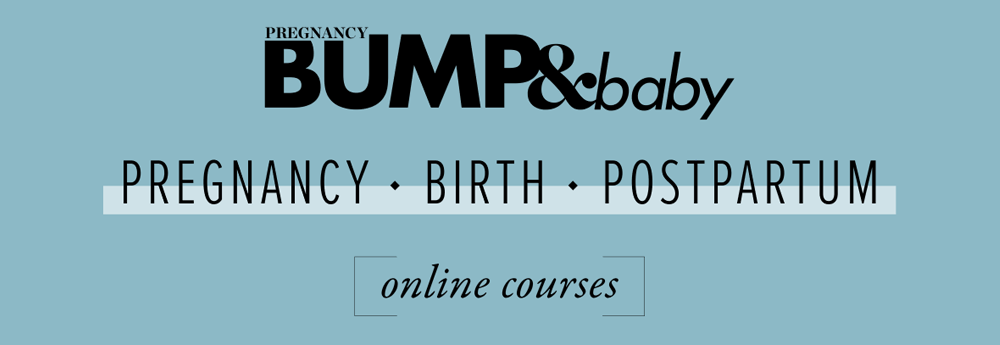
If it’s your first time giving birth, or you’ve been there, done that, you may feel fairly freaked out by the idea of giving birth. How DOES a whole baby fit through there? Here are some ways to get on top of the fear ahead of time and have a stress-free labour.
Learn about the three stages of labour
When you’re in the throes of childbirth, you might feel like it’s never going to end – and you may start to panic, thinking not going to be able to do it. Remembering the three you may feel fairly freaked out you’re stages of labour (and educating your birth partner about them by the idea of giving birth. How too) can help you to focus on moving ahead.
Stage 1: early labour – this is the beginning of labour, when you feel contractions and your body is indicating it’s time there? Here are some ways to get for birth. This stage is the longest, and can last from a few days to a few hours. During this first stage of labour is when you will on top of the fear ahead of time to go to the hospital or birthing centre. Often the end of this stage is signalled by something called “transition” – when mums-to-be feel like they can’t go on, and they may even say they want to go home and not have the baby at all! Some mums vomit or cry at this point. At the end of this stage is also when you’ll feel like you need to push.
Stage 2: active labour – this is when your cervix is completely open (dilated) and you’re ready to push. This stage lasts until your baby is born.
Stage 3: Delivery of placenta – you’ll continue to have contractions after your baby is born, but they won’t be as strong or painful (or you might not notice them as much as you’ll be focused on your baby). These contractions will help you deliver the placenta, and then they will stop.
Look after your emotions
It’s all well and good to say “Feel the fear and do it anyway,” but in reality, many mums-to-be are scared of the birthing process – particularly the pain, as they have never felt it before and have no context for it. If you’re scared by the idea of childbirth, talk to your midwife beforehand and be specific about what is worrying you. It can also help to talk to friends who have had babies about their experiences (ask them for positive advice, not horror stories). Educate yourself about childbirth and what to expect, as “forewarned is forearmed”, attend antenatal classes – and ask lots of questions. Counselling may also help you to work through your fears. It’s important to identify your emotions and honour them by acknowledging them and getting help for the things that are upsetting you.
Know your options for pain relief
Whether you want pain relief or not, it’s important that you know what the options are – in case you change your mind. Find out what pain relief is available at your hospital or birthing centre (most birthing centres can only offer minimal pain relief and cannot give epidurals) and find out from your midwife at what point you can have pain relief, how long it takes to administer, how fast it will take effect, if it will prevent you from being in certain positions while you’re in labour, and if there are complications you should know about. Ensure that your partner understands your wishes with regard to pain relief. And try to be flexible. There’s no award for giving birth without pain relief, and there’s no shame in wanting or needing it.
Get to know your surroundings
Take a tour of the birthing centre or hospital birthing suite well before you’re due to give birth, so you know exactly where to park, where to go, and what kind of environment you’ll be in. Find out what happens if you might need to arrive in the middle of the night (some hospitals only have particular entrances open after-hours, and you don’t want to be driving around the place looking for the way in). Ask what the hospital or birthing centre provides and what you need to bring along with you. Find out if there is a birthing pool and other things like exercise balls to sit on during labour. And ask to see the post-birth accommodation – will you be in a shared room? What will your baby sleep in? What are the toilets like?
Read positive birth stories
Horror birth stories abound on the internet, and it’s almost impossible to avoid them. And reading scary birth stories can make your anxiety even worse. Read positive stories about normal labour and birth. At the same time, ask your midwife to tell you what ways you can help yourself to have a safe labour and birth. It’s important that you know how things will be handled if something goes wrong, but rather than reading awful stories on the internet, get your midwife – who has been at the business end of things far more often than you have – to calmly and factually prepare you for things to go right. And then go read some more positive birth stories.
Remind yourself that you can do this
This is hard for first-time mums to believe, but you can and will get through birth, and you will do an amazing job of it. Stay positive and remind yourself that your body knows how to grow a baby with very little input from you – really, your job is to stay healthy and let your body do its work. Labour and birth are similar – your body knows what to do, and your midwife is there to guide you through the process. Put positive affirmations about labour and birth where you can see them – the mirror in your bathroom, your closet door, your diary – and reaffirm to yourself that you are strong and powerful, and your amazing body can handle labour and birth.
Do what it takes to relax
Doing yoga, swimming, meditation, getting a pregnancy massage, relaxation exercises, journalling, gazing at the clouds – whatever makes you feel relaxed, do it. Pregnancy is the time to pamper yourself, so don’t hold back on the things that make you feel calm, refreshed, and centred.
BUMP&baby
BUMP & baby is New Zealand’s only magazine for pregnancy and early babyhood. Our team of mums and mums-to-be understand what it’s like to be pregnant in this connected age, and that’s why BUMP & Baby online is geared toward what pregnant women and new mums really want to know.
Other articles of interest
What to do (and not do) during labour
This one’s for your birth companion – anyone whom you’re planning to have in the delivery room while you’re in labour and giving birth needs to read it.
Pregnancy symptoms… For dads!
Thought it was just mums-to-be who get morning sickness, gain weight, and have mood swings? Dubbed “Couvade syndrome”, pregnancy symptom-sharing by dads-to-be is far more common than you may realise.







